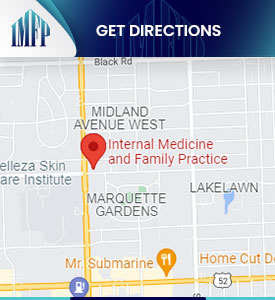How Often Should You Get an EKG Done?
EKGs diagnose various conditions by monitoring the heartbeat and identifying irregularities like a fast or slow heart rate. They can also assess heart attack risk and other issues. Regular EKG screenings are recommended for individuals with a family history of heart disease or those showing potential signs or symptoms of heart problems. Dr. Wael Mctabi, MD, and Dr. Samiullah Choudry are here to provide you with expert care. EKG testing is available at Internal Medicine and Family Practice. For more information, contact us or book an appointment online today! We are conveniently located at 1719 Glenwood Ave Joliet, IL 60435.
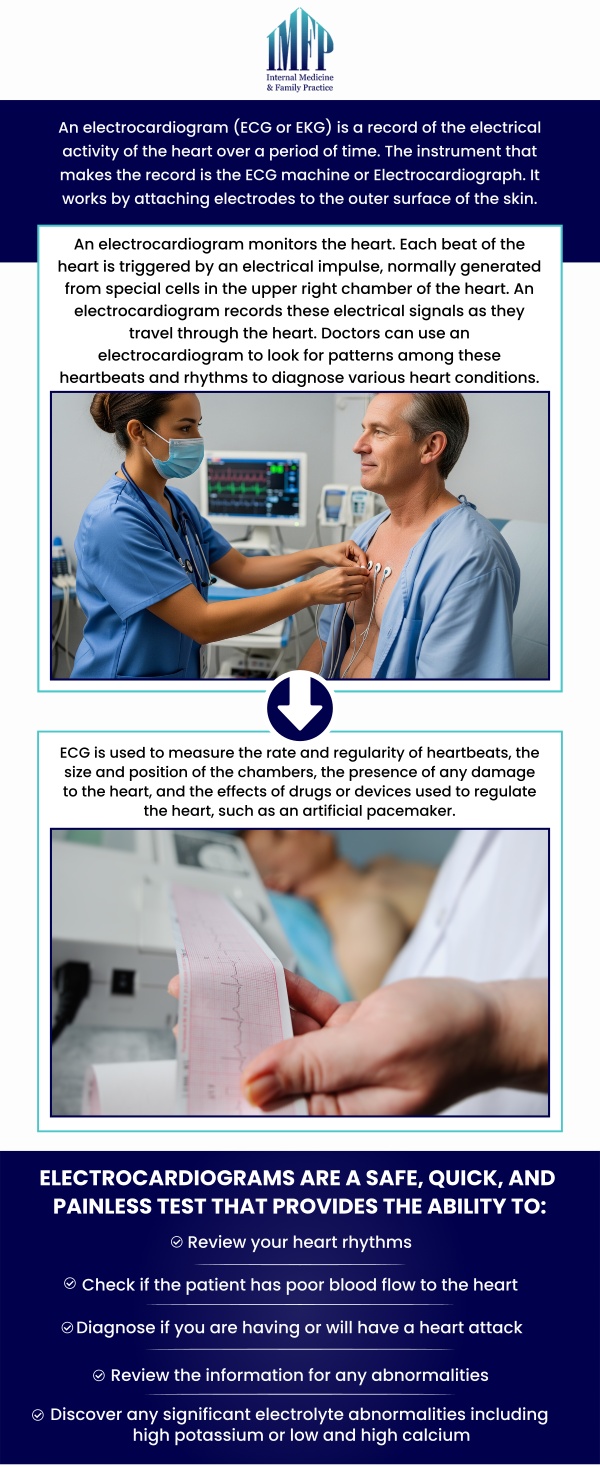
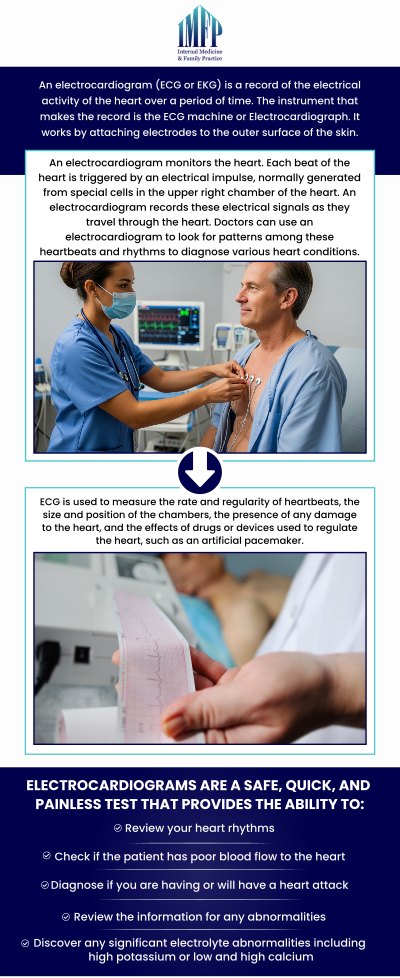
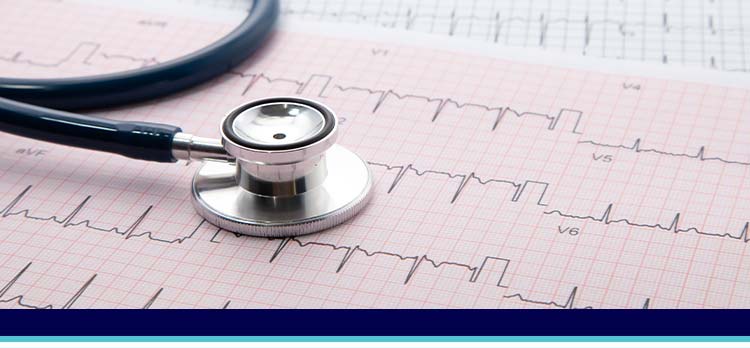
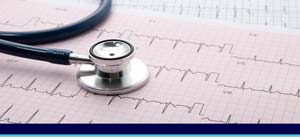
Table of Contents:
Do I need regular EKGs?
How can I protect my heart health?
When should you get an EKG done?
Whether or not you need regular EKGs depends on various specific circumstances related to your health. EKGs are used to diagnose a range of conditions by checking the heartbeat and detecting irregularities, such as a fast or slow heart rate, and can assess the risk for heart attack among other issues.
Regular EKG screenings are often recommended for individuals with a family history of heart disease or those who have exhibited signs or symptoms potentially indicative of heart problems, such as chest pain, heart palpitations, or shortness of breath.
In cases where individuals have a history of heart issues or related chronic conditions, regular EKGs may be necessary to monitor heart function and the effectiveness of treatments like pacemakers. For low-risk individuals without symptoms, EKGs may still be performed as a basic screening tool, though less frequently.
EKGs are safe and effective tests that facilitate the early diagnosis of heart disease and a wide range of associated heart conditions, enabling swift treatment interventions to improve patient health outcomes across the board. Providers at Internal Medicine and Family Practice will work with patients in determining their need for regular EKG testing.
Protecting your heart health involves a combination of healthy lifestyle choices and regular medical checkups, including engaging in heart health screening tests like EKGs, especially when risk factors are present.
When heart problems are detected early, patient health outcomes improve as a result of swift treatment interventions. To minimize the risk of heart disease, it’s important for patients to avoid smoking and tobacco use and to engage in 30 to 60 minutes of physical activity daily to help control weight and reduce the risk of conditions that strain the heart, such as high blood pressure, type 2 diabetes, and high cholesterol.
Eating a heart-healthy diet rich in vegetables, fruits, lean meats, fish, beans, whole grains, and healthy fats can significantly improve heart function and reduce the risk of adverse health outcomes.
Additionally, managing stress through relaxation exercises, yoga, meditation, and ensuring a good night’s sleep are essential for maintaining overall heart health.
Regular screenings and checkups are also vital, particularly for those at higher risk of heart problems, to facilitate early detection and treatment. By reducing intake of refined carbohydrates, salty meals, alcohol, and sugar-sweetened beverages and avoiding highly processed foods, individuals can further protect their hearts and maintain a healthy weight.
The decision to have an EKG is typically made on an individual basis and should be discussed with healthcare providers at Internal Medicine and Family Practice.
An EKG may be necessary if you exhibit symptoms potentially indicative of heart issues, such as chest pain, heart palpitations, a rapid or irregular heartbeat, shortness of breath, fatigue, or a decreased ability to engage in physical activity. It is also highly beneficial for diagnosing and monitoring various heart conditions and their treatment processes, including coronary artery disease, arrhythmia, heart failure, heart attacks, congenital heart defects, and heart valve diseases.
EKGs may be ordered for those presenting symptoms of a heart condition, those who have been diagnosed with a heart condition, or even asymptomatic individuals if they have a significant family or personal history of conditions that increase the risk for heart disease.
Regular EKGs can detect previously undetected heart disease and are important in every step of managing heart health, from diagnosis to treatment and ongoing monitoring, with the primary goal of improving health outcomes comprehensively.
EKGs can also be used to check how well treatments, such as pacemakers, are working, and they may be required ahead of certain surgical interventions.
EKG testing is available at Internal Medicine and Family Practice. For more information, contact us or book an appointment online today! We are conveniently located at 1719 Glenwood Ave Joliet, IL 60435. We serve patients from Joliet IL, Plainfield IL, Lockport IL, Channahon IL, Romeoville IL, Manhattan IL and surrounding areas.
Check Out Our 5 Star Reviews




